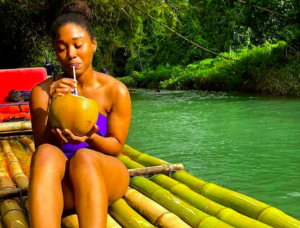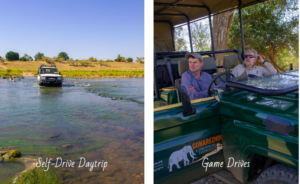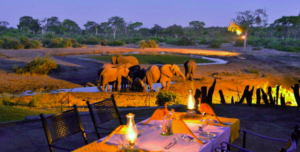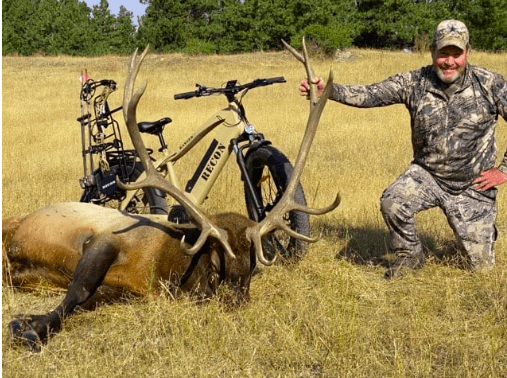
Is Hunting a Sport or a Hobby?
For thousands of years, hunting has been an important aspect of human history and culture. While its origins may be traced back to a need for food, hunting has grown into a treasured athletic activity enjoyed by millions of aficionados worldwide. It gives more than simply the excitement of the chase; it links people with nature, encourages conservation, and provides an unforgettable feeling of adventure. In this essay, we’ll look at the varied world of hunting as a sports or hobby activity and why it continues to grab so many people’s hearts.
Hunting may be classified as both a sport and a pastime, depending on how people approach it and what motivates them to participate.
Hunting as a sport
When hunting contains competitive components or is done primarily for fun and challenge, it is generally classified as a sport. Hunting may be compared to other sports that demand ability, strategy, and physical prowess in this context. Some hunters may in tournaments or contests that evaluate their marksmanship, archery skills, or other hunting talents. Hunting may be considered a sport when people participate for the thrill of the chase, the excitement of the pursuit, and the challenge of outwitting their target.
Hunting as a hobby
Many individuals pursue hunting as a pastime for leisure and personal satisfaction. These hunters may value the experience of being in nature, the companionship of hunting with friends and family, or the chance to get away from their everyday routines. Hobbyist hunters may also prioritise social elements of hunting, such as sharing tales, rituals, and meals with other hunters. Hunting may also be considered a hobby when it is perceived as a leisure or recreational activity that people enjoy doing in their spare time.
My final say
Hunting is classified as a sport or a hobby based on the individual’s attitude and approach to the activity. It’s worth emphasising that for many hunters, hunting is a diverse activity that can include aspects of both sport and pastime, as well as cultural and conservation values. The reasons and experiences of hunters can vary greatly, making hunting a diverse and intensely personal endeavour for individuals who participate in it.
What are some benefits of hunting?

The Call of the Wild
Hunting is fundamentally a voyage into the wilderness. Hunters immerse themselves in natural environments, developing a bond with nature that is difficult to reproduce elsewhere. The outdoors comes alive in ways that most of us miss in our contemporary, urban lives, from the crisp, dew-laden mornings to the eerie sounds of faraway animals.
A Skill and Patience Test
Hunting entails much more than simply pressing the gun or launching an arrow. It requires patience, good observation, and detailed understanding of the quarry’s behaviours and habitats. Walking through deep forests, sitting silently in a blind, or pursuing elusive wildlife demands a degree of expertise and perseverance that even the most experienced hunters find difficult.
Wildlife Conservation and Management
Hunting, contrary to popular belief, plays an important part in conservation. Fees and licences for hunting help to support conservation initiatives, habitat preservation, and wildlife management programmes. Hunters assist preserve ecological balance by reducing numbers of specific species, which can lead to habitat deterioration and food scarcity for wildlife.
Sustainable Practices
Ethical hunting emphasises sustainable practises, with strong restrictions in place to conserve endangered animals and habitats. To minimise waste, responsible hunters take only what they need, utilising as much of the animal as feasible. This environmentally conscious strategy assures that future generations may partake in the same sporting pleasures.
A Connection to Ancestral Roots
Hunting is a method for many people to reconnect with their ancestral roots and customs. It’s a tribute to our shared heritage as hunter-gatherers, handed down through generations. Hunting stories and tactics are part of our cultural history, connecting us to our ancestors and conserving their wisdom.
Mental and Physical Challenges
Hunting is both physically and psychologically taxing. The terrain may be difficult, the weather can be unpredictable, and the hours can be long. This exercise tests hunters’ endurance and builds resilience and self-reliance. Furthermore, the sense of accomplishment that comes with a successful hunt is quite satisfying.
Culinary Delights
Hunting is about more than simply the chase; it’s also about the catch. Wild game meat is among the most tasty and healthy available. Preparing a supper from a deer, elk, or wild turkey taken by hand is a source of pride as well as a gastronomic adventure in and of itself.
Cultural Significance:
Many societies and indigenous tribes across the world place a high value on hunting. It is frequently linked with traditions, rituals, and stories passed down through generations. These customs contribute to a sense of identity and continuity with the past.
Wildlife Observation:
Aside from the harvest, hunting offers an unrivalled chance for wildlife observation. Hunters spend numerous hours studying about animal behaviour, migration patterns, and ecological dynamics in the field. This comprehension and regard for the natural world is enhanced by this information.
Bonding and camaraderie:
Hunting is frequently associated with shared experiences with friends and family. It creates participant camaraderie, trust, and a strong sense of bonding. Hunting camps are locations where lifetime friendships are formed as stories are exchanged over campfires.
Mindful Connection:
Hunting promotes awareness and a stronger connection to the natural world. Hunters must be aware of even the tiniest factors, such as wind direction and animal footprints. This increased awareness of one’s environment can lead to increased mindfulness and tranquillity.
Exploration and adventure:
Hunting may take you to some of the world’s most distant and unspoiled environments. Each hunting trip is an experience, allowing the chance to discover new and untamed locations, whether it’s stalking animals in the high mountains, crossing deep forests, or waiting patiently in a marsh.
Hunting as a sport is a multifaceted endeavour that extends well beyond the act of capturing an animal. It embodies a strong connection to nature, a dedication to conservation, and a test of ability and patience. It helps us to reconnect with our ancestors, pushes us emotionally and physically, and rewards us with a sense of success and delectable meals.
How does hunting help in conservation?
When done responsibly and sustainably, hunting may play an important part in conservation. Here’s a more in-depth description of how hunting aids conservation:
Funding Conservation Efforts:
Many nations have implemented systems in which hunting permits and licences produce cash that is subsequently reinvested in conservation programmes. These monies, which can be large, are utilised for operations like as habitat restoration, wildlife research, anti-poaching campaigns, and the acquisition of property for protected areas. This monetary assistance is crucial for the long-term health of ecosystems and their people.
Population Control:
Controlled hunting can aid in the management of animal populations. Overpopulation of particular species can result in habitat deterioration, increased food competition, and disease transmission. Wildlife authorities can restrict populations within healthy and sustainable bounds by establishing particular hunting quotas based on scientific evidence.
Human-Wildlife Conflict Reduction:
Hunting can help alleviate tensions in situations where wildlife encroaches on human settlements. Hunting certain animals that are causing agricultural damage or endangering human safety can solve these problems without resorting to more harsh methods like culling or relocation.
Preservation of Habitat:
Habitat protection is frequently prioritised by hunting organisations as a method of sustaining game populations. Hunters indirectly safeguard a vast range of animals beyond their quarry by protecting natural habitats, which are critical for many species.
Conservation Incentive:
Local people have a direct stake in animal conservation when they gain from hunting. Revenue from hunting may be used to support community livelihoods, education, and healthcare, providing a strong incentive to conserve both the animals and their ecosystems.
Selective Harvesting:
Ethical hunters often choose certain animals based on variables such as age and gender, ensuring that the population’s healthiest individuals are maintained for reproducing. This type of selective harvesting can help to build healthier, more resilient animal populations.
Species Recovery:
Hunting has had a part in the recovery of endangered animals in several circumstances. Controlled hunting programmes, when well-managed, may produce cash and increase awareness for the conservation of these species. For example, the African white rhinoceros population has grown as a result of regulated hunting.
Data gathering and research:
Hunters frequently collaborate with wildlife organisations and researchers to acquire important data on animal populations. This information is critical for evaluating ecosystem health, following species changes, and making educated conservation decisions.
Principle of Sustainable Use:
The principle of sustainable usage is fundamental to ethical hunting. It recognises that, because people are a part of the environment, well-managed hunting can be a vital aspect of preserving ecological balance. Hunting and animal conservation may coexist when done ethically and legally.
Ethical Behaviour Promotion:
In their communities, responsible hunting organisations and hunters encourage ethical behaviour and conservation ideals. This ethical hunting culture can deter poaching and unethical practises that harm animals.
It is critical to emphasise that conservation hunting must always conform to stringent legislation and ethical norms. Conservation authorities must base hunting limits on scientific research, and hunters must prioritise animal respect, conformity to hunting rules, and a dedication to ecosystem preservation. Hunting, when controlled and practised properly, may be a vital tool for conservation efforts all around the world.
Why do Americans love hunting?
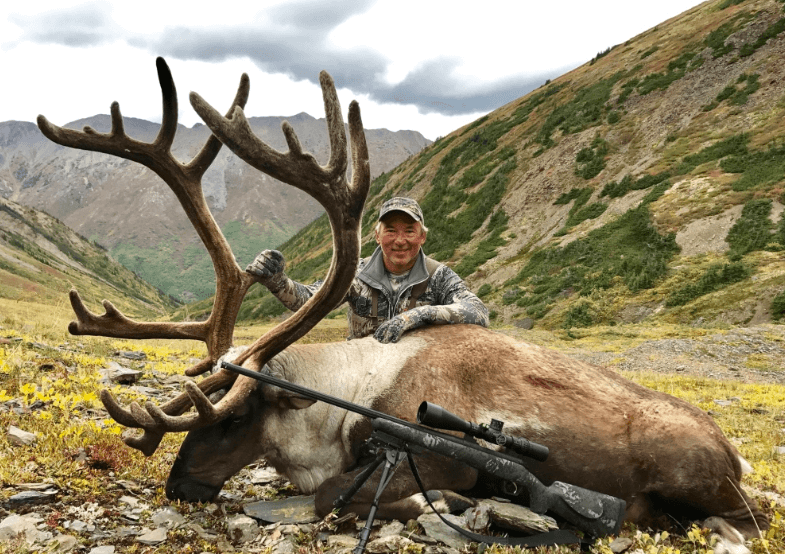
The passion of hunting in America stems from a combination of cultural, historical, recreational, and practical considerations. Here are some of the reasons why hunting is so important in American culture:
Historical Roots:
Hunting has a long and illustrious history in the United States. For survival and nourishment, the country’s first settlers, both Native Americans and European colonists, relied on hunting. It was a crucial talent in the country’s early years.
Outdoor Tradition:
The United States has extensive wilderness, woods, and open areas. Hunting allows people and families to interact with nature while also getting away from the rush and bustle of city life.
Cultural Heritage:
Hunting is frequently handed down through families, becoming an important component of family customs and cultural history. Teaching children to hunt is an excellent method to develop values like responsibility, respect for nature, and ethical behaviour.
Connection to Conservation:
Many American hunters are passionate about conservation. They recognise the need of managing animal populations for the long-term health of ecosystems. Funds from hunting permits, licences, and weapons and ammunition excise fees all contribute considerably to wildlife conservation initiatives.
Thrill of the Pursuit:
The thrill of tracking game, the challenge of outwitting their target, and the anticipation of a successful hunt are all stimulating experiences for many hunters. The chase of wild animals is both an adrenaline rush and a personal challenge.
Source of Sustainable Meat:
Hunting offers a supply of organic, sustainable meat. Some hunters like the ability to gather their own food, knowing where it comes from and being a part of the process from field to table.
Culture of Deer Hunting:
Whitetail deer are common in many sections of the United States, including the Midwest and the South. These areas have a significant deer hunting culture, with deer camps, hunting leases, and social activities centred on the hunting season.
Traditions Concerning Firearms:
The United States has a long history of gun ownership. Many hunters see hunting as a continuation of this heritage and a chance to use their Second Amendment rights responsibly.
Community and friendship:
Hunting frequently develops a sense of belonging and fraternity. Hunting clubs, hunting parties, and deer camp meetings all provide possibilities for social contact and shared experiences.
Wildlife Control:
Some hunters consider themselves to be land and wildlife stewards. They take delight in assisting in the management and conservation of animal populations in order to maintain a healthy balance within ecosystems.
Wellness and Mental Health:
Hunting provides a respite from the rigours of daily life and can be viewed as a sort of rehabilitation. Time spent in nature, away from screens and city bustle, can improve mental health and overall well-being.
It’s crucial to recognise that people’s motivations for hunting might differ greatly. While some hunters are concerned with the practical elements of hunting animals for food, others are concerned with the cultural and recreational components, and still others are concerned with wildlife conservation and habitat preservation. Finally, the many incentives for hunting contribute to the sport’s continued appeal in American society.
Most hunted Animal in USA
The white-tailed deer (Odocoileus virginianus) is the most hunted mammal in the United States. Because white-tailed deer are plentiful and widely spread across the country, they are a favourite game species among hunters. Deer hunting is a time-honored practise in practically every state in the United States.
Deer hunting is normally done during hunting seasons set by state wildlife authorities in order to regulate deer numbers and maintain sustainable hunting practises. White-tailed deer meat is highly valued for its quality and is frequently used for venison, offering a supply of locally sourced and organic meat for many homes.
Other regularly hunted animals in the United States include turkey, waterfowl (such as ducks and geese), upland game birds (such as pheasants and quail), wild boar, and a variety of small game species. Depending on local environment and wildlife populations, the popularity of various game species might vary by area and state.
What country has the most hunting?
1- The United States
The United States has one of the highest levels of hunting activity in the world. A long hunting legacy, plentiful natural landscapes, a varied range of game species, and a strong tradition of weapon ownership all contribute to the appeal of hunting in the United States.
Other countries with strong hunting cultures and traditions include:
2-Canada:
Canada is well-known for its extensive natural regions and robust hunting traditions. Deer, moose, bear, waterfowl, and upland birds are popular game species. Canada’s northern regions provide some of the most distant and difficult hunting opportunities.
3-Russia:
Russia has a rich hunting tradition, with huge swaths of wilderness and a diverse range of game animals such as bears, wolves, elk, and Siberian tigers. In Russia, hunting is strictly governed by rules and regulations.
4-South Africa:
South Africa is a renowned worldwide hunting destination due to its varied fauna and well-organized hunting business. Hunters from all over the globe come to see elephants, lions, leopards, and rhinoceroses.
5- Argentina:
Argentina is well-known for its hunting prospects, particularly for red stags, water buffalo, and doves. The country’s varied landscapes, from the Andes Mountains to the Pampas plains, provide a variety of hunting opportunities.
6- Namibia:
Namibia is a popular trophy hunting location, with a focus on conservation and sustainable usage. Oryx, kudu, and springbok may be found in the country’s arid settings.
7- New Zealand:
New Zealand has one-of-a-kind hunting opportunities, with an emphasis on exotic species such as red deer, fallow deer, and tahr. The various landscape of the region, from mountains to woods, gives a variety of hunting chances.
8- Australia:
Australia has a robust hunting tradition, with popular game animals including kangaroo, deer, feral pigs, and ducks. Hunting is governed by a mix of government rules and private landowners.
9- Scandinavian Countries:
Hunting has a long history in Sweden, Finland, and Norway, with a concentration on game animals such as moose, reindeer, and numerous bird species. These countries also place a premium on environmentally friendly hunting methods.
10- Spain:
Spain is well-known for its hunting traditions, particularly for animals such as the Spanish ibex, red deer, and wild boar. Different regions of Spain provide distinct hunting opportunities.
11- African nations:
Many African countries have robust hunting businesses, drawing hunters from all over the world to shoot elephants, lions, leopards, and buffalo. Safari hunting is popular in countries such as Zimbabwe, Tanzania, and Zambia.
It is crucial to note that hunting practises and rules differ greatly between countries, and hunters must abide by local laws and ethical standards. Many regions prioritise conservation initiatives and sustainable hunting practises to protect the long-term health of wildlife populations and ecosystems.
Related Posts
Related
Arkansas elk Hunting Full guide With Best Outfitters To Use.
Fallow Deer Hunting in Texas: Unleash Your Inner Hunter Amidst Breathtaking Wilderness.
Mississippi Deer Hunting Adventures Full Guide.
Deer Hunting in Connecticut: A Guide to Seasons, Regulations, and Tips.


